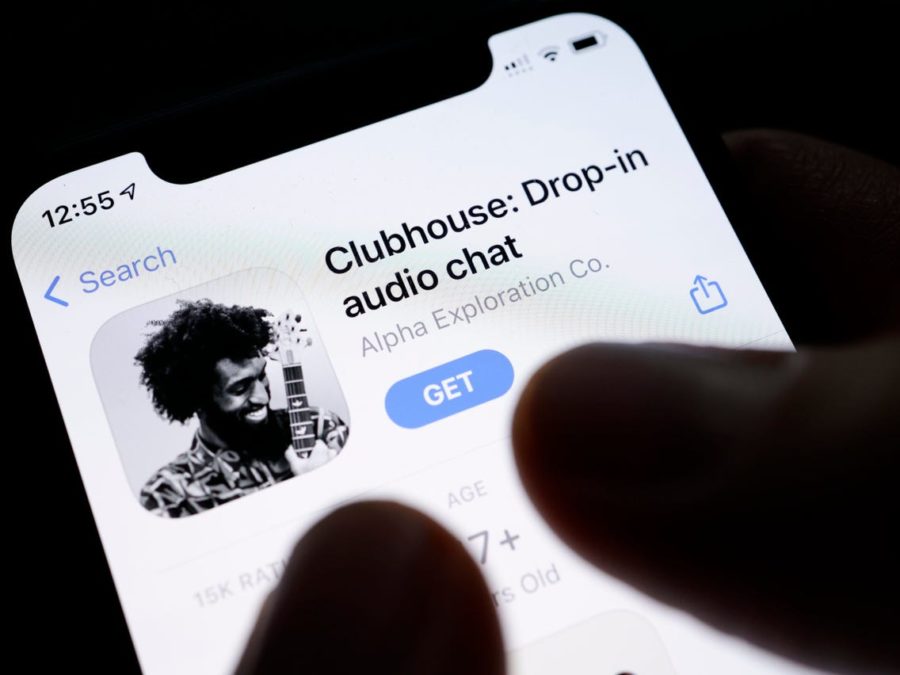Clubhouse
March 10, 2021
Clubhouse is an invite-only audio-based social media platform. Prominent celebrities and business people have joined the platform, causing the app to soar in popularity.
According to The New York Times, Clubhouse was downloaded over 4 million times in January, an enormous accomplishment for an app only 11 months old. It has been able to draw this following by filling a niche in social media. In Clubhouse, you can join and start rooms where people can freely talk to one another and also host an audience of up to 5,000 people.
When you create a room, you choose who can join the conversation, and this has allowed people to create an atmosphere which has the appeal of an interview, podcast, or simply a casual conversation. The invite-only process of joining the app and the opportunity to join clubs gives the app a more intimate feeling than well-established platforms like Twitter or Instagram.
However, as the platform has grown, it has also drawn celebrities like Elon Musk, Drake, Mark Zuckerberg, and Oprah Winfrey. These figures have drawn crowds and media attention to the app which has begun to lessen the feeling of intimacy and lower the expectation of privacy. Many more people have begun to download the app and reserve their usernames as they wait to get a sought-after invitation.
“This was awesome. I didn’t even know this existed a week ago. This seems cool,” said Musk during a Jan. 31 interview he had on the app.
Musk’s endorsement of the app has drawn a lot of attention. He has notably invited Vladimir Putin, the president of Russia, to speak on the app by tweeting at the Kremlin. Surprisingly, this offer is being seriously considered by officials, but it is unknown if they will accept.
From humble beginnings to possibly hosting leaders of state, Clubhouse has accomplished a lot in its short time. The app grew out of a San Francisco-based startup headed by two Stanford graduates, Paul Davison and Rohan Seth. However, it has not all been smooth sailing; with more people than ever, privacy and moderation are increasing concerns.
Many creators have reported harassment, but with conversations happening live, it is hard to track abuse. One way that Clubhouse has acted to stop this is by temporarily recording all conversations held on the app as a way to screen abuse concerns. This is not a perfect solution and has also led to concern about how this data is being held, especially as international users have also begun to organize and discuss politics and political actions on the app. This freedom to discuss ideas has already led China to ban Clubhouse.
Furthermore, when you join the app, you are encouraged to share your contact list to connect with people you may know. Clubhouse grants every new member two invitations and access to your contact list is one way that the app helps you send the invitation. However, the app also appears to collect the information of people who are not yet members, as it tells you how many people someone in your contacts may know on the app. This access to third-party information is concerning for experts in privacy law, as a similar use of data by Facebook was prohibited by the European Union.
Clubhouse is valued at $1 billion with many investors betting hard on the app’s success. Many companies seem to believe that the creators struck gold and imitators have already risen with Twitter and Facebook announcing that they are working on software to compete with the app. Nonetheless, Clubhouse is continuing to grow and only time will tell if it will have the staying power to become the next TikTok, Instagram, or Facebook, or if it is just another pandemic trend.
Photo courtesy of BUSINESSINSIDER.COM

